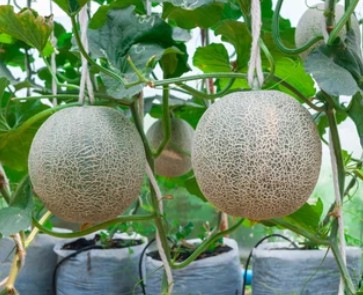Cucumis melo L. fruit is sweet and rich in various nutrients. Fresh food is the main and is one of the world's top ten fruits, it originated in the Ethiopian plateau in Africa and its neighboring regions and is now also widely cultivated in the world's temperate to tropical areas. The whole herb is used for medicinal purposes and removes inflammation and poison, inducing vomiting, removing dampness, and reducing jaundice. Melons can be divided into two major types: diploid and polyploid, and the current cultivars are mainly diploid melons. As one of the most widely planted melon crops in the world, the use of biotechnology to improve its yield, fruit storage, and transportation resistance has become a practical and effective means.
Lifeasible provides advanced technical services in plant transformation, and our plant genetic transformation covers many plants. In Cucumis melo L. transformation, we use melon cotyledons as transgenic recipient material, infect the recipient material with Agrobacterium tumefaciens carrying the target gene vector, insert the T-DNA into the genome, and then screen for antibiotics corresponding to resistance to obtain independent resistant healing tissues, which will be further differentiated and regenerated into transgenic strains. The technical support we provided effective assistance in helping researchers obtain melon quality with the targeted traits.

| Materials available to customers | Sample requirements |
| Customers can provide the constructed Cucumis melo L. transformation vectors directly, or they can entrust us with the vector construction service. |
Customers can provide bacterial liquid or bacterial plate. The bacterial liquid should be within 1 year, preserved with glycerol. Plates should be activated within 1 week. It is recommended that customers provide plasmids, E. coli and Agrobacterium are easily contaminated in the mail. |
| Customers are required to provide ≥1000 mature seeds within one year. |

Lifeasible is committed to plant genetic transformation research, we rely on advanced technology platform and professional research team, aiming to accelerate the process of plant genetic transformation research with researchers. The plant genetic transformation we provide is significant in helping researchers understand Cucumis melo L. development and quality improvement. If you are interested in us, please feel free to contact us.
Lifeasible has established a one-stop service platform for plants. In addition to obtaining customized solutions for plant genetic engineering, customers can also conduct follow-up analysis and research on plants through our analysis platform. The analytical services we provide include but are not limited to the following:
Get Latest Lifeasible News and Updates Directly to Your Inbox